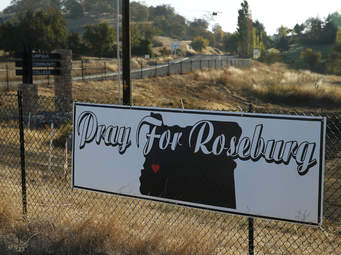Certainty vs. Cognitive Humility: Why does it always have to be either or?
In these postmodern times certainty is out. Offer a “verily, verily” truth claim and you’re met with arched eyebrows or yawning indifference. “Why does it always have to be either or?” The modern preference for precept and proposition, thesis and antithesis has been replaced with the postmodern affinity for paradox and mystery. Living with the tension and the questions. The most recent example of this I have read is Rachel Held Evans' delightful spiritual memoir Evolving in Monkey Town.
In these postmodern times certainty is out. Offer a “verily, verily” truth claim and you’re met with arched eyebrows or yawning indifference. “Why does it always have to be either or?” The modern preference for precept and proposition, thesis and antithesis has been replaced with the postmodern affinity for paradox and mystery. Living with the tension and the questions. The most recent example of this I have read is Rachel Held Evans' delightful spiritual memoir Evolving in Monkey Town.In the final chapter she cites all the questions for which she used to have sure answers, but now doesn’t: I don’t know how God will ultimately judge between good and evil. I don’t know which church tradition best represents truth. I don’t know who goes to heaven and who goes to hell…”
Evans instead embraces a relational faith focused on Jesus with much less certainty. In our book group I asked how many of us, like Rachel, used to be more certain, black and white, focused on getting God right… and have made a similar journey to a faith that is more relational and characterized by a growing cognitive humility. More gray. More mystery. To my surprise every woman (all over 50) in the room agreed with Rachel. Including me. And yet…
While we appreciate more the paradox and mystery and tension and uncertainty, we feel the pendulum has swung too far. Rachel points to the teaching of Jesus as the instructive example of her newfound postmodern faith, especially his tendency to speak in open-ended parables and stories, promoting tolerance and pluralism.
If we could sit down over a coke I would love to discuss with Rachel those passages where Jesus seems a little less postmodern. For example: Jesus' conversation with the Samaritan woman at the well in John 4. She comes asking Jesus, “Our fathers worshiped on this mountain, but you Jews claim that the place where we must worship is in Jerusalem." Essentially her question was, "Which culture/which religion has it right?"
Jesus did not just honor her sincerity by putting his arm around her saying, "Dear woman, all paths lead to heaven." He could have only said, as he did in vs. 24, “God is spirit, and his worshipers must worship in spirit and in truth." But he honored her question with a more certain answer, “You Samaritans worship what you do not know; we worship what we do know, for salvation is from the Jews." This is not narrow or racist or intolerant. This is speaking the truth in love.
Jesus spoke truth with confidence using logic and reason because he is himself the embodiment of logic and reason. “In the beginning was the Word.” The Logos. We needn’t abandon claims to reason, logic and sometimes, certainty, but point to their embodiment in Jesus. Jesus taught in terms of thesis and antithesis. If one idea is true, the opposite is false. “Why does it always have to be either/or?” Because it was often either/or with Jesus:
• Salvation is from the Jews, not the Samaritans.
• Matthew 12:30 "He who is not with me is against me, and he who does not gather with me scatters.
• Jn 18:37-38 “…for this reason I was born, and for this I came into the world, to testify to the truth. Everyone on the side of truth listens to me."
But how do we do this with cognitive humility? Authenticity is the key. Admit our own failures, mistakes. How we struggle with the rules and the questions sometimes. Present Jesus as the message, not ourselves. But acknowledge that simply offering a long list of tough questions about faith is not an answer in itself. It is not a place to rest or stand. While some questions don’t have answers of which we can be confident, many do. What is needed is careful dialogue, reason and logic as well as questions and mystery. It doesn’t have to be either/or. It can be both/and.
As Jesus shows us many questions *do* have answers. Good ones. For the read-more-about-it-crowd Dallas Willard has written a very helpful book on how we can trust spiritual knowledge: Knowing Christ Today
.




2 Comments
ori tVisitor
This is good. And my vote is
This is good. And my vote is "BOTH!" Yesss.
On a previous blog of yours…Halloween to Christmas; what about Thanksgiving?…Yes! This year I just canNOT get over the gross consumerism, selfishness and greed that permeates our society. Even some churches: not much mention of GIVING or thanks; seems to be much more fun to skip commitment and dive right into the presents and guilt-free spending of a materialistic, "me first" society. I know this sounds too strong (but I did take my estrogen today, so…).
Sue Bohlin
Great balance, Lael!
You have struck the Goldilocks (just right) balance between walking in humble confidence and a willingness to live with tension in having unanswered questions. The attitude of our hearts makes all the difference, doesn't it? I have seen people who are absolutely sure they are right and there is no other way to see things than their way–and I've seen people who are so paralyzed by postmodern uncertainty that they lack any peace in being able to just rest in the God who DOES have the answers and isn't afraid to tell us what they are.
I love how you presented Jesus speaking truth in love to the Samaritan woman in a very un-PC way–yet her life was changed because there ARE some things we can be absolutely, unapologetically sure of!
Such as. . . Jesus is Lord. And God.